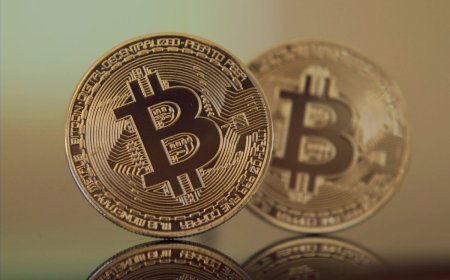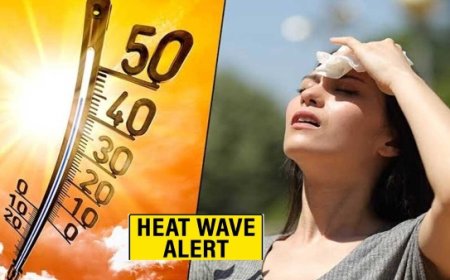Scorching Weather Alert Issued for Delhi-NCR: Next 2 Days to Remain Extremely Hot
Weather authorities have warned that Delhi-NCR will face intense heat for the next two days. Temperatures are expected to rise significantly. Here's everything you need to know to stay safe and cool.

Scorching Weather Alert Issued for Delhi-NCR: Next 2 Days to Remain Extremely Hot
The India Meteorological Department (IMD) has issued an urgent warning for people living in Delhi and the National Capital Region (NCR). According to the weather forecast, the next 48 hours will bring extreme heat, with temperatures reaching dangerous levels. Authorities have advised citizens to stay indoors during peak heat hours and take all necessary precautions.
Let’s look at everything you need to know — from the expected temperature rise to health tips and precautions for staying safe during this harsh weather.
1. What the Weather Department Has Announced
-
The IMD has released an official heatwave alert for Delhi-NCR, stating that the region is expected to face intense heat for the next two days.
-
The warning is based on rising temperatures and dry weather conditions that are likely to persist.
-
The highest temperatures may go beyond 44°C, especially during the afternoon hours.
2. Which Areas Are Most Affected?
-
The heatwave alert is not just for central Delhi, but also includes parts of:
-
Gurugram
-
Noida
-
Ghaziabad
-
Faridabad
-
-
These areas are likely to experience similar hot and dry conditions, making it important for residents to remain cautious.
3. Temperature Levels to Watch Out For
-
In some parts of the region, temperatures may cross 45°C.
-
Nighttime temperatures will also remain warm, giving little relief from the heat.
-
Humidity levels may be low, but the dry air will make conditions more uncomfortable.
4. Why This Heatwave Is a Big Concern
-
A heatwave is declared when the temperature is 4.5°C or more above normal.
-
Long periods of extreme heat can be harmful to health, especially for children, the elderly, and people with existing health conditions.
-
Dehydration, heat exhaustion, and even heatstroke are real risks during this time.
5. What Causes This Sudden Heat Spike?
-
The rise in temperature is due to hot winds blowing from Rajasthan and other dry regions.
-
Lack of rainfall and clear skies mean sunlight directly hits the surface, heating up the ground quickly.
-
This kind of heatwave usually happens in April and May, as summer peaks in northern India.
6. Tips to Stay Safe and Healthy During the Heat
Here are some important safety tips recommended by health experts and weather authorities:
-
Stay indoors during the hottest hours of the day (12 pm to 4 pm).
-
Drink plenty of water even if you’re not feeling thirsty.
-
Wear loose, light-colored cotton clothes.
-
Use an umbrella or cap if you must step outside.
-
Keep your home well-ventilated and cool.
-
Avoid eating oily or spicy food.
-
Take cold showers to lower body temperature.
7. Extra Care for the Most Vulnerable
Some people are more affected by extreme heat, including:
-
Infants and toddlers
-
Elderly individuals
-
People with health issues like diabetes or heart conditions
-
Outdoor workers (construction, delivery, traffic duty)
If you're in any of these categories or know someone who is, make sure to provide extra care and watch for any signs of overheating.
8. How Schools and Offices Are Responding
-
Some schools have issued circulars asking students to stay hydrated and avoid outdoor activities.
-
A few offices have advised flexible working hours to avoid commuting during peak heat.
-
Workers involved in outdoor jobs are being told to reduce physical effort and take more breaks.
9. Heat-Related Health Issues to Watch Out For
It’s important to know the warning signs of heat-related illnesses:
-
Heat exhaustion: dizziness, weakness, headache, vomiting.
-
Heat cramps: muscle pain or spasms during physical activity.
-
Heatstroke (medical emergency): high fever, confusion, loss of consciousness.
If you or someone else experiences these symptoms, seek medical help immediately and move to a cooler place.
10. Helpful Tools to Monitor the Heat
You can stay updated and track the temperature using:
-
IMD’s official website (https://mausam.imd.gov.in)
-
Weather apps on smartphones
-
Local news channels or government alerts
-
Social media pages of Delhi Disaster Management Authority
11. Ways to Keep Your Home Cool Naturally
-
Close curtains and windows during the afternoon.
-
Open windows early in the morning and late evening for cool air.
-
Place bowls of water near windows to increase humidity.
-
Use wet curtains or coolers for better airflow.
12. Water Shortages May Add to the Problem
-
During extreme heat, water usage increases, sometimes leading to shortages in parts of Delhi and NCR.
-
It’s advised to use water carefully, avoid wastage, and store extra drinking water at home.
13. Avoid These Mistakes During a Heatwave
-
Do not leave children or pets in parked vehicles.
-
Avoid drinking alcohol or sugary drinks as they cause dehydration.
-
Don’t ignore signs of fatigue or headache — take rest immediately.
14. How Long Will This Heat Continue?
-
According to weather officials, the next two days (likely till Thursday evening) will be the most intense.
-
After that, temperatures may drop slightly, or a dust storm or light rain may bring temporary relief.
-
A more permanent change in weather is expected only later in April.
Final Takeaway
Delhi and NCR residents are no strangers to summer heat — but this upcoming heatwave is expected to be especially harsh. With daytime temperatures crossing 45°C, staying indoors, staying hydrated, and avoiding physical strain is more important than ever.
Authorities are monitoring the situation closely and will keep issuing updates. As citizens, it’s our responsibility to take care of ourselves and look out for others, especially those who are more vulnerable.
Let’s stay alert, stay safe, and wait for cooler days ahead!
Would you like this article in Hindi, or as a short social media post or infographic for sharing? I can help with that too!
What's Your Reaction?


























































